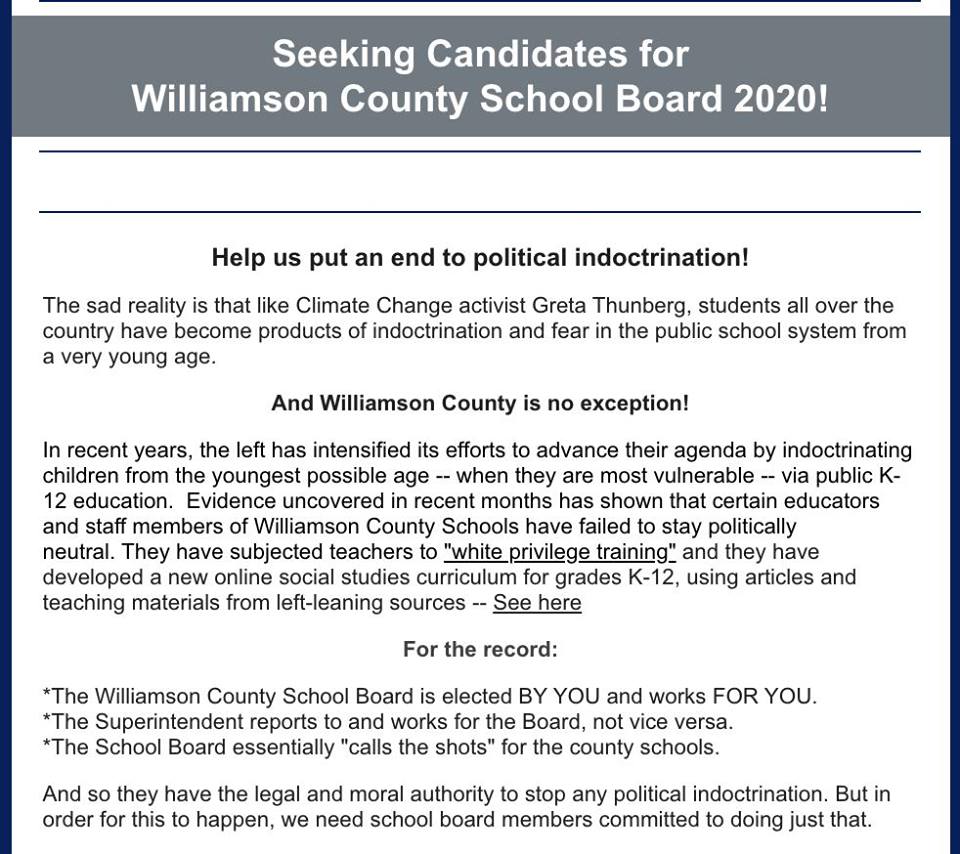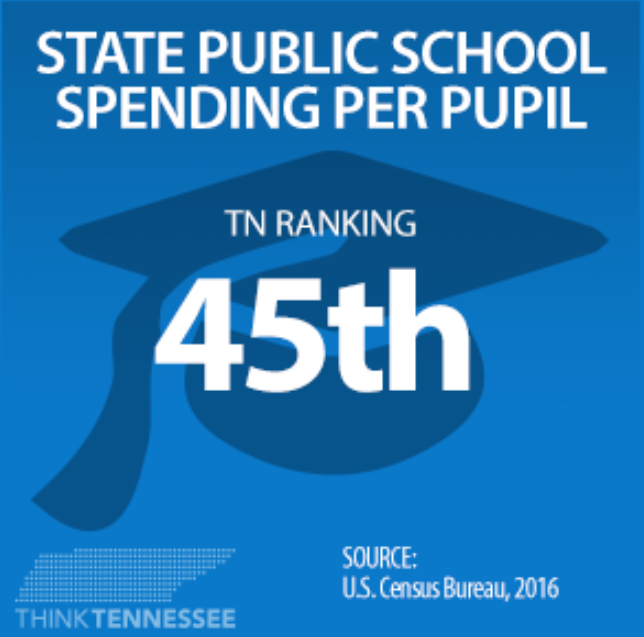A group known as One WillCo helped organize a parent response to a plan by Williamson County Schools to focus attention on diversity in the district and address issues of systemic racism.
Here’s more from a press release:
Before tonight’s school board meeting, over 100 community members joined outside the Williamson County Admin Complex to show support of the district’s hiring of “Fostering Healthy Solutions” and their efforts to support diversity and inclusion in the district. Fifteen community members spoke in gratitude during the period of public comment.
Revida Rahman, mom to two children in Williamson County Schools reminded everyone that “Brown v. Board of Education was decided 67 years ago today. If your child hasn’t experienced racism at school, that’s good for you, but that doesn’t mean it doesn’t happen to other kids. Our students have the right to a safe environment. If you aren’t empathetic to children being harmed by racism, please stop trying to prevent action. We have to do something and the time to act is now.”
Lee Cooke also spoke in support of diversity work. He has 3 children in WCS and recognized that people of color are grossly underrepresented in Williamson County, even on the Board and on the faculty and staff. He continued, “And I find it concerning and disappointing that there is no formal training for faculty around unconscious bias. I go through it twice a year with my corporate job, so I’m not sure why teachers don’t get the same training. We need a better system of reporting & tracking so students feel safe reporting incidents.”
Dustin Koctar lives in District 12 and has 3 kids in elementary school. “I want to thank you for hiring FHS (Fostering Healthy Solutions) for much-needed assistance and guidance to make schools safer and more welcoming for everyone. You put your reputations at risk and opened yourselves up to harassment and hate. I’m asking you to stay the course and continue the support.” He also addressed fellow white people in the crowd, “we can move past the discomfort you may feel about this. If left unattended, white guilt can become the best friend of white supremacy. Children should be able to see people who look like them. We support the children who feel powerless.”
Emily Miller, a mother with one child in WCS and one attending soon, and an admin of the “Together Nolensville” Facebook Group also spoke, “Thank you to the Board for hard work in all areas of education and for hiring FHS, a qualified third party to help us make difficult decisions. As a white mom of white kids, this still matters to me, as it should to everyone. We want schools to be a safe and comfortable place for incident reporting and accountability. Thank you, and keep up the good work you’re doing.”

For more on education politics and policy in Tennessee, follow @TNEdReport
Your support – $5 or more – makes publishing education news possible.






